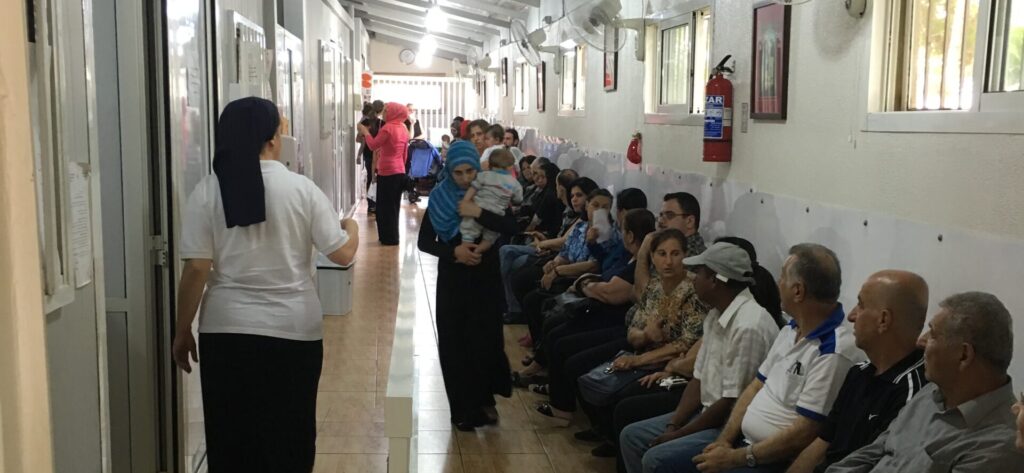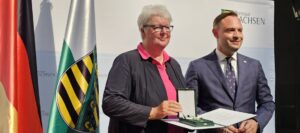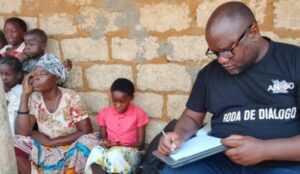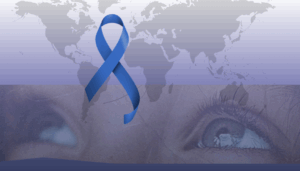As peoples around the world continue to call for an immediate and sustained ceasefire to hostilities in Gaza, the centers and projects of our sisters and partners-in-mission in neighboring Lebanon and Syria continue to feel the effects of the volatile situation unfolding in Israel and Palestine.
Having managed to keep the mission alive through recent decades of disaster, heartbreaking decisions have had to be taken in light of the increased demands on services and the severely depleted budget and supplies.
“We are struggling to pay the staff who work for us since money raised from fundraising has halved since the war in Gaza began,” said Sr. Hanan Youssef, the head of St Antoine Community Healthcare Center, speaking in a recent interview with the Communications Office in Rome.
Well known for her humanitarian work, Sr. Hanan spoke of the worsening situation in her home country of Lebanon since the attack by Hamas on Israel and the subsequent Israeli offensive in the Gaza Strip.
Having first arrived in the Middle East in 1893, the sisters are now present in Beirut, Mount Lebanon, and the Bekaa Valley in Lebanon, as well as two major cities in Syria – where they have been providing services 25,000 people every year.
Even before the breakout of recent hostilities, Lebanon and Syria were on their knees with years of escalating crises having pushed into poverty and food insecurity the majority of people. It is expected that by 2028, the number of Syrian refugees alone will reach about 7 million in Lebanon, while the Lebanese population is about 4,500,000.
Many of those fleeing from Syria made their way to Beirut where the situation has become dire. Already struggling from the pandemic and a bruising economic crisis, the port blast in the city and the major destruction that resulted from it crippled the economy and the country.
With an annual inflation rate of 270% – one of the highest in the world after Venezuela – families in Lebanon have found it impossible to meet their basic daily needs. Most cannot afford private healthcare services and rely on free-to-access services such as the St. Antoine Community Health Center in Roueisset-Jdeideh.
Commonly called ‘the dispensary’, the center was founded by Sr. Hanan in 2003 in one of the most underprivileged suburbs of Beirut where 45,000 Christian and Muslim Lebanese and refugees mostly live below the poverty line, crammed into unsanitary buildings.
With the motto of ‘Religion is for God, and the dispensary is for all’ the center opens its doors without distinction to all who seek to access free basic health services and specialized medical care.
Having gone from serving 100 people per month to 3000 per month, demands now far exceed what it needs to provide. But with no State support since October 2019, the dispensary survives entirely on Lebanon’s Mission Development Office and on funds from the Harris Fraser Foundation administered through GSIF.
For the sisters who work at the dispensary, the most painful thing is to see their family members now having to queue to access free services. Before the collapse of the economy, these same family members would have once donated money to the center or sent apples, olives, or other food and supplies.
In Dora, another of the city’s most densely populated suburbs, sisters have had to turn girls away at the social center for young girls due to a lack of funds. Opened in 2020, the center has aimed to prevent violence within families and contribute to the protection and empowerment of young girls, many of whom are refugees from Syria.
The painful decision to close a separate shelter for women and girls in the Metn Region had to be taken due to a lack of funds to cover running costs and pay staff. In a deeply patriarchal country where women face multiple layers of discrimination and obstacles to their empowerment, the support this center offered to around fifty vulnerable women and their children was a lifeline. However, sisters and partners-in-mission have managed to keep open the shelter for around forty young girls victims of violence and abuse, as it is unique in the country.
In the nearby mountain village of Hammana, the sisters established the Good Shepherd School in 1895 in an area of sectarian conflict where intra-community tensions are still palpable today. For over 100 years, the school has provided access to education for children aged from 3 to 18 years old. However, funded solely through funds administered through GSIF and other partners, and with no government support, it has struggled to stay open and the future of the 346 pupils is in jeopardy.
“The suffering and the violence that is taking place in the Middle East,” says Sr. Hanan, “is beyond imagination”. As the situation in Gaza worsens, the real worry is that Israel’s planned invasion of Rafah will serve as a catalyst for an uncontrollable inferno across the region. Tens of thousands of people have already fled on both sides of the border between Israel and Lebanon as violence there continues to escalate between Israeli forces and Hezbollah. Having lost everything, many of those who flee their homes come to Beirut where, as Sr. Hanan says, “they arrive with nothing”.
However, Sr. Hanan is hopeful that a ceasefire will happen and that Israel will work towards a two-state solution. “The only solution is a political solution that is embraced by all parties – a solution in the spirit of Fratello Tutto”. She is hopeful that a solution for Gaza will mean a solution is found for Hamas, for Hezbollah, for peace in Yemen and Israel and for all points of conflict in the region. Such an outcome, she hopes, will mean that the good people of Lebanon and Syria who have fled during these decades of horror will come home and help to rebuild their homeland.
We need you to ensure the continuity and viability of these projects. Please donate to make a big difference in the life of a girl, woman, or child. Your generosity will enable our sisters and partners-in-mission to continue to provide access to medical care, accomodation, education, and other support services to Lebanese and refugee families desperately trying to survive these critical times. Donate here.







